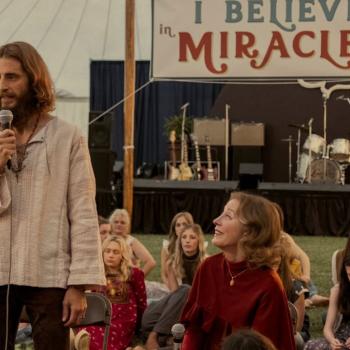This book is being reviewed as part of a series of resources that I think would be helpful for those who are interested in finding out more about the charismatic issue in light of some of the posts I have written on this blog on that subject.
The whole book seems to be inspired by a talk Dan Wallace gave in 1994 entitled, “The Uneasy Conscience of a Non-Charismatic Evan-gelical.” Indeed, the preface of the book is based heavily on the notes of the address he gave. In that address, he confesses that as a cessationist, “I replaced my passion for Jesus Christ with a passion for the Bible.”
Interestingly, Wallace does not become a charismatic, but his book instead urges cessationists to find room for the experiential reality of the Holy Spirit whilst not giving up their theological positions.
In his address (and in the beginning of the book) Wallace confesses that when his son was sick:
“I needed God in a personal way–not as an object of my study, but as friend, guide, comforter. I needed an existential experience of the Holy One. Quite frankly, I found that the Bible was not the answer. I found the Scriptures to be helpful–even authoritatively helpful–as a guide. But without feeling God, the Bible gave little solace. In the midst of this “summer from hell,” I began to examine what had become of my faith. I found a longing to get closer to God, but found myself unable to do so through my normal means: exegesis, Scripture reading, more exegesis. I believe that I had depersonalized God so much that when I really needed Him, I didn’t know how to relate. I longed for Him, but found many community-wide restrictions in my cessationist environment. I found a suffocation of the Spirit in my evangelical tradition, as well as in my own heart. It was this experience of my son’s cancer that brought me back to my senses, that brought me back to my roots. And out of this experience I have been wrestling in the last eighteen months with practical issues of pneumatology.”
Wallace bases the book on eleven theses which he shared in that talk:
-
Although the sign gifts died in the first century, the Holy Spirit did not.
-
Although charismatics have given a higher priority to experience than to relationship, rationalistic evangelicals have given a higher priority to knowledge than to relationship.
-
This emphasis on knowledge over relationship has produced in us a bibliolatry.
-
The net effect of such bibliolatry is a depersonalization of God . . . our stance changes from “I trust in” to “I believe that.”
-
Part of the motivation for this depersonalization of God is our increasing craving for control.
-
God is still a God of healing and miracles.
-
Evangelical rationalism can lead to spiritual defection.
-
The power brokers of rational evangelicalism, since the turn of the century, have been white, obsessive-compulsive males.
-
The Holy Spirit’s guidance is still needed in discerning the will of God.
-
In the midst of seeking out the power of the Spirit, we must not avoid the sufferings of Christ.
-
Finally, a question: To what does the Spirit bear witness?
He concludes the online version of his talk as follows:
“Don’t be too quick to answer. Some of this needs rethinking . . . In fact, my challenge to each of you is this: re-examine the New Testament teaching about the Holy Spirit. Don’t gloss over the passages, but wrestle with what they mean. If the Spirit did not die in the first century, then what is He doing today?”
The book has contributions from the editors, and among others, Richard Averbeck, Gerald Bray, James Sawyer, J. I. Packer, and a forward by Josh McDowell. Subjects include our emotions, the black church, discerning the will of God, and other interesting chapters. It is stocked in the bookstore of C. J. Mahaney’s and Josh Harris’s church – which is a serious endorsement.
I find that there are two kinds of cessationists who interact with me. One seems to genuinely want to neuter God and remove any sense of Him interacting with us today. The second tells me “But us cessationists do believe in the Holy Spirit, Adrian!” People in that second group would do well to buy and read this book. It is very interesting to me that a book like this can be written by cessationists today. Perhaps this is a sign that some form of convergence really is possible – if not now, at some point in the future.












